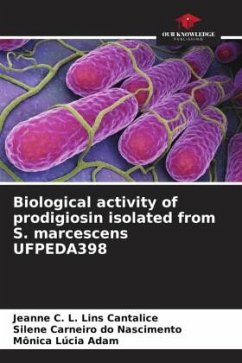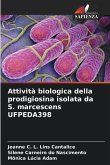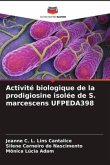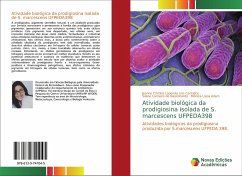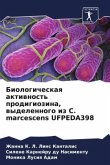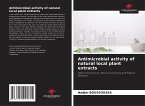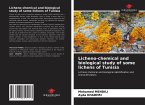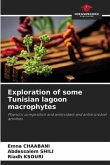Prodigiosin, a natural red pigment, is an alkaloid produced by Serratia marcescens and belongs to the prodiginin family whose pigments have three cyclic pyrrolic rings in their chemical structure. This pigment has aroused, in recent years, a growing interest in the medical, pharmaceutical and industrial areas for its biological activities described as antimicrobial, antimalarial and antitumour. In recent years, the search for knowledge about the cytotoxic activity of prodigiosin has been intensified, with cytotoxic effects being described in tumour cell lines such as lung, colon, kidney, breast, and low toxicity observed in normal cells. However, the genotoxic effects of prodigiosin on cell lines still need to be better elucidated. Due to its antitumour potential and lack of evidence demonstrating genotoxic effects, this study aimed to evaluate the antimicrobial activity of prodigiosin against pathogenic Gram-positive and Gram-negative microorganisms, its cytotoxic effects of thepigment on tumour cell lines, as well as the genotoxic effects.
Bitte wählen Sie Ihr Anliegen aus.
Rechnungen
Retourenschein anfordern
Bestellstatus
Storno

